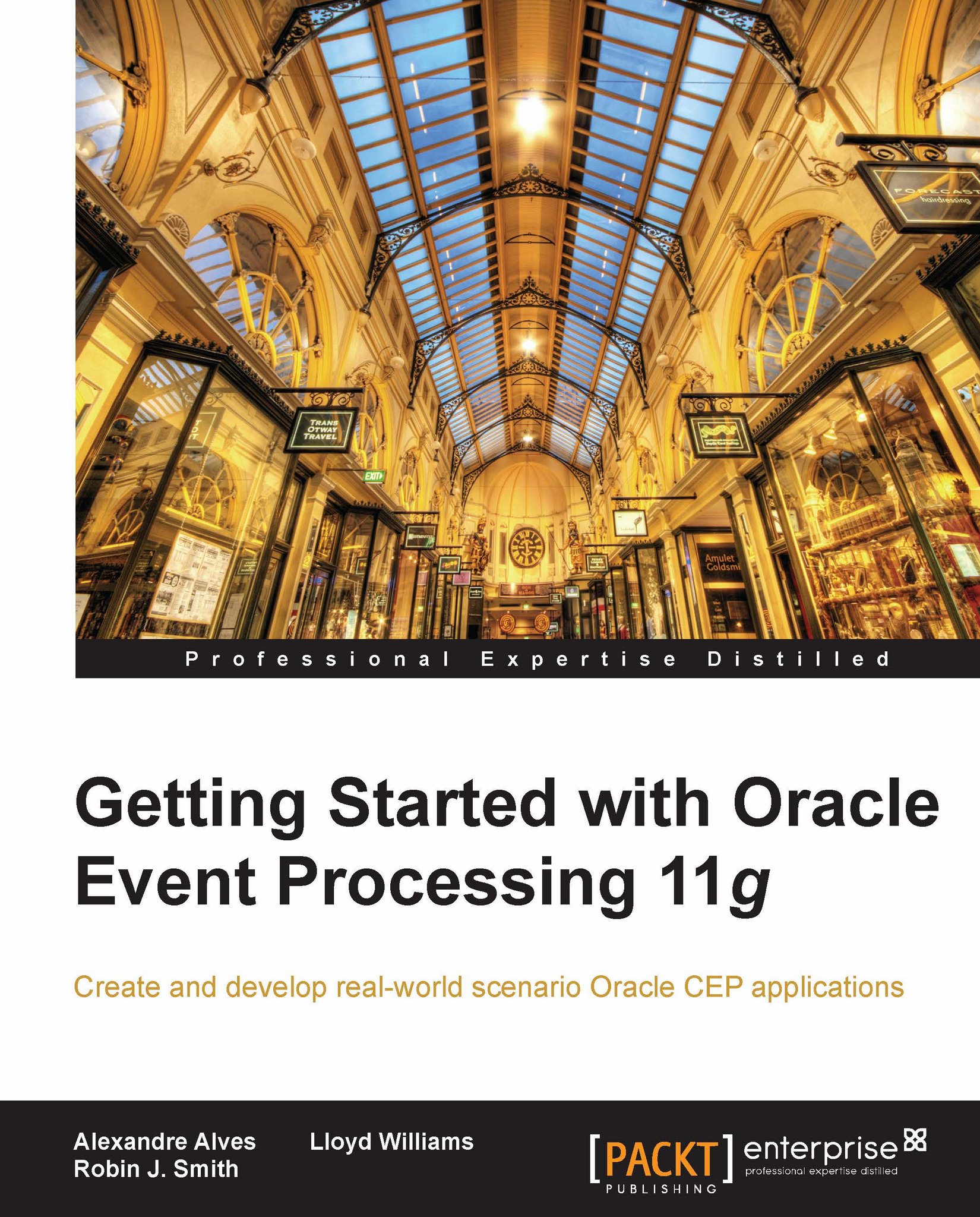Overview of this book
Events are everywhere, events which can have positive or negative impacts on our lives and important business decisions. These events can impact a company's success, failure, and profitability. Technology now allows people from all walks of life to create Event Driven applications that will immediately and completely respond to the events that affect you and your business. So you are much more responsive to your customers, and competitive threats, and can take advantage of transient time sensitive situations. "Getting Started with Oracle Event Processing" will let you benefit from the skills and years of experience from the original pioneers who were the driving force behind this immensely flexible, complete, and award winning Event Stream Processing technology. It provides all of the information needed to rapidly deliver and understand Event Driven Architecture (EDA) Applications. These can then be executed on the comprehensive and powerful integral Java Event Server platform which utilizes the hardware and operating system.After an introduction into the benefits and uses of Event Stream Processing, this book uses tutorials and practical examples to teach you how to create valuable and rewarding Event Driven foundational applications. First you will learn how to solve Event Stream Processing problems, followed by the fundamentals of building an Oracle Event processing application in a step by step fashion. Exciting and unique topics are then covered: application construction, the powerful capabilities of the Oracle Event Processing language, CQL, monitoring and managing these applications, and the fascinating domain of real-time Geospatial Movement Analysis. Getting Started with Oracle Event Processing will provide a unique perspective on product creation, evolution and a solid understanding on how to effectively use the product.



 Free Chapter
Free Chapter
